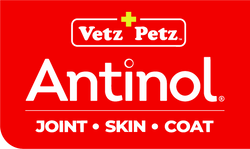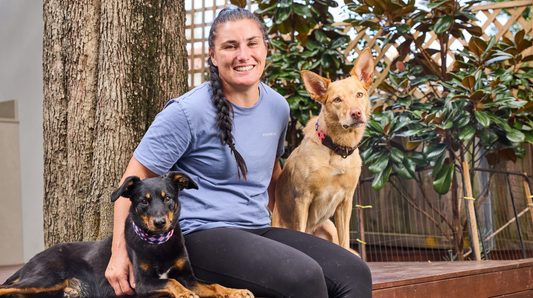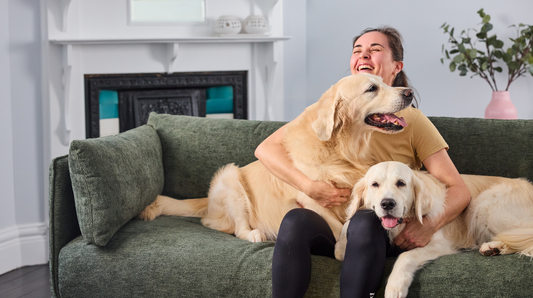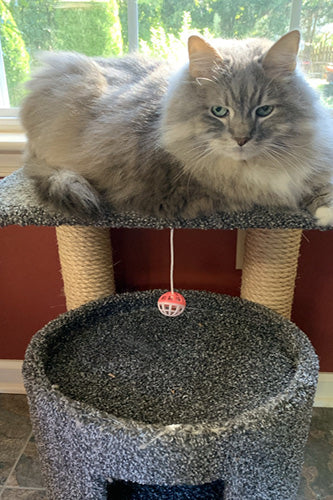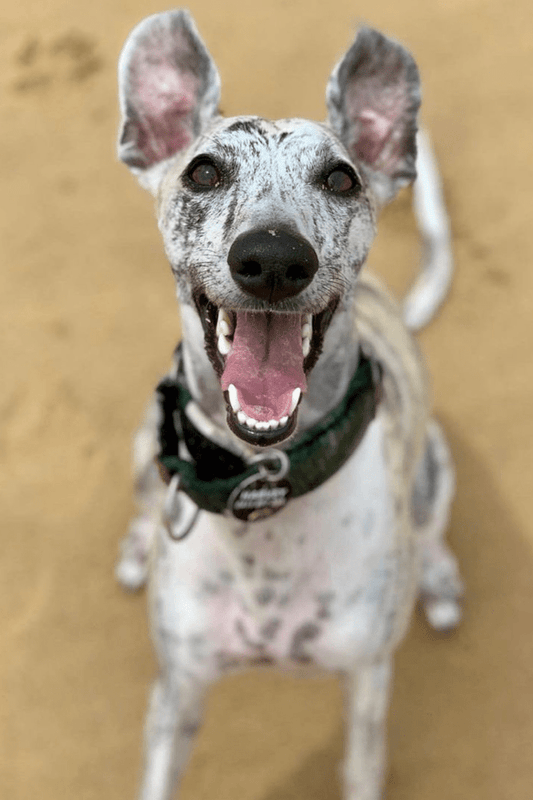We love hearing about your pets here at Antinol®. So Chloe White RVN, our education specialist, has met with some of our pet parents to hear about their pet's incredible mobility journeys.
Chloe had a chat with Lindsay about her beautiful 2-year-old working golden retriever, Grace, to hear more about her knee surgery and how she is now back to living her best life.

The global ambassador for joy
"Grace is a very, very happy girl. We call her the 'global ambassador for joy' because she spreads joy wherever she goes."
Lindsay loves nothing more than getting out running with her two dogs, Grace, and Betty.

"When I say I'm a runner, I'm not particularly fast; I just do it for fun. All of us are reasonably fit and run a few times a week, but I noticed that Grace was starting to lag behind a little bit."
At the same time, Lindsay noticed Grace looking a little creaky at home. She sometimes struggled to get up. Unfortunately, Grace didn't improve, so she went for some tests, but she needed to see an orthopedic specialist.
"Getting an appointment took another couple of months due to lockdown, and during that time, she got quite bad. She could barely stand up. She was diagnosed with having ruptured both her cruciate ligaments in her knees, and the state she was in meant that surgery really was the only option for her."
Canine cruciate repair surgery
Cruciate surgery is a common procedure, particularly in larger breed dogs. Due to the joint's anatomy, it is often more complex than in human cruciate repairs. However, in most cases, the surgery is a success.
"I was devastated. She was only 2 and a really fit, healthy, and athletic dog. My dogs are my absolute life; I felt overwhelmed by the surgery itself and the prospects for the rest of her life, but thankfully the surgeries themselves were very successful."
Lindsay followed all the advice given by her vet and the specialist. They undertook six months of rehabilitation therapy for each knee, kept her at a healthy weight, and fed her a joint supplement that Lindsay had used previously.
"About six months after her second operation, Grace was almost her usual self. She was exercising as usual but looked a little bit stiff, for example, on the stairs. She seemed tired after long walks, but I wondered if I was being hypersensitive."
Lindsay needed some reassurance and reached out to Grace's surgeon, Mike Gilliard. He confirmed that she was doing brilliantly, and her surgery had been a complete success. However, she would need long-term multi-modal management to support her joint health in the years to come.

The "next-level" joint supplement
"It was at that point that Mike mentioned Antinol®. He described it as a joint supplement and went into quite a lot of technical detail, which I must admit, I didn't understand. I explained that she was on another, well-known supplement, but he said, 'well, that's good. It's a great product, but Antinol® is next level.' I remember his language. He said, 'It's next level.'"
While chatting in a canine cruciate injury support group on social media, Lindsay asked if anyone else had given Antinol® a try with their dogs.
"I remember clearly; I had two or three people come back with these absolutely, almost unbelievable, amazing personal experiences that were very similar to Grace's. I think that, together with Mike's recommendation, swayed me. I thought, 'right, let's give this a try'."
Feeding the capsules was never a problem.
"Grace is greedy, to be honest, but they're tiny capsules, so I just put them on her food, and they disappear. I had to manage my expectations with them, and I was a bit skeptical that they could do anything more than the supplement we were already using."
Up to 90% of pet owners saw a difference in their pet's mobility while using Antinol. However, every pet is individual, and some see results quicker than others. Lindsay didn't see instant results with Grace, but she persevered.
"It was gradual – not an overnight 'oh-my-God' moment, but it's been amazing. Grace has been on Antinol for about 9-months now, and we noticed a difference at around 3-months. It wasn't straight away, but she has been at her best for a number of months now."
Grace is back out running with Lindsay and Betty, back to being an excitable 2-year-old, back to loving life, and Lindsay couldn't be happier!

"It's been amazing. I could go knocking on doors, telling people about AntinolⓇ. Grace is 100% now, which means the absolute world to me. She is chasing squirrels. She's running with me. She's doing her fantastic dives into water, swimming. She's absolutely 100%."
Lindsay remembers how scary it was, learning the long-term difficulties Grace could be facing, and many other owners have the same worries.
"I think back to how scared, upset, and overwhelmed I felt, and that's why I want to tell people about it. I want them to know that there is something that they can try."
So, what would Lindsay and Grace tell other pet owners in their position?
"Give Antinol® a try. Don't be overwhelmed. Don't be disheartened. It's our duty to them, isn't it? To give them the best chance and to look after them. They give us so much."
We loved having Grace (and Lindsay, of course) join us, and we can't wait to see more videos of her tearing around with Betty.

If your pet has an Antinol® success story, we would love you to join us for a chat. Get in touch at contact@vetzpetz.com. (And we will never turn down a cute photo or happy video of your pet!)
Disclaimer: These stories are for informational purposes only. The information is not a substitute for expert veterinary care. Stories are written by the Antinol team based on real interviews conducted with the pet parents and represent their own observations. These observations are not guaranteed, are not medically substantiated, and may not be typical for other pets.
